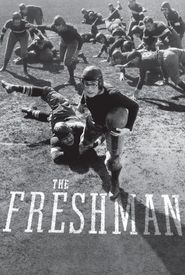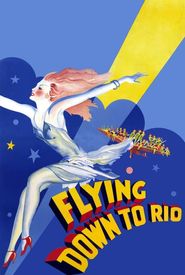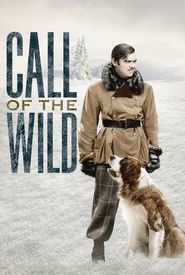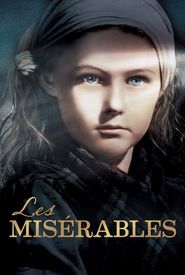Leon Beaumon, whose professional pseudonyms included Leon Beauman, Beaumont, and Leon Duval, was a relatively unknown stage and film actor during the 1920s and 1930s. His life began in 1898 on a farm situated near Youngstown, Ohio, where he was born Herman Bauman to German immigrant parents. As a young individual, he was involved in the steel mills industry, where he worked diligently. Additionally, Herman shared a passion for education with his two brothers, and together they pursued their studies near Chicago, with the ultimate goal of becoming a Catholic priest.
In the year 1920, a significant turning point occurred in the life of Herman, as he became embroiled in a heated disagreement with one of his superiors within the seminary, ultimately leading him to make the bold decision to leave his spiritual pursuits behind and set his sights on the sun-kissed state of California, where he hoped to realize his dream of becoming a movie star.
In a bold move, Herman convinced his younger brother, Marty, to join him on this ambitious journey, and together they embarked on a westward migration, braving the unknown and facing numerous challenges along the way. During this transformative period, they found temporary employment in a still, where they learned the art of distillation and eventually turned their skills to more illicit purposes, operating a clandestine hooch operation in the city of Denver.
Leon and Marty Beaumon, formerly known as Herman, embarked on a transformative journey, opting to adopt a new surname, Beaumon, as they settled into their new life in Hollywood.
Leon's filmography remains an enigma due to the inexorable passage of time and his renowned efforts to conceal his true age, leaving his children with scarce information about his Hollywood career.
Despite the scarcity of details, a scrapbook, archival sources, and his lifelong friend and fellow actor, the late Bob St. Angelo, have provided glimpses into Leon's acting endeavors.
According to available records, Leon had credited roles in several films, including A Fight to the Finish, released in 1925, Clancy of the Mounted, which premiered in 1933, Pioneer Trail, a 1938 production, and The Law Comes to Texas, which hit the big screens in 1939.
A prolific actor, he made his mark on the big screen with a plethora of uncredited roles in iconic films, commencing with the 1934 epic drama, Cleopatra, alongside an all-star cast. This was swiftly followed by another notable appearance in the 1935 musical comedy, Folies Bergère de Paris, showcasing his versatility as a performer.
As the years went by, he continued to take on various roles, including the 1939 drama, Fugitive at Large, where his talent shone through, despite not receiving credit for his work. His next notable performance was in the 1935 screen adaptation of Victor Hugo's classic novel, Les Misérables, a testament to his range as an actor.
He also appeared in the 1935 adventure film, The Call of the Wild, alongside Clark Gable and Loretta Young, further solidifying his reputation as a talented thespian. In the same year, he took on the role of a lifetime in the 1935 comedy, The Freshman, a film that showcased his comedic chops and cemented his status as a rising star.
In addition to his numerous film appearances, he also had a notable stint in the 1934 biographical drama, The Mighty Barnum, a film that paid tribute to the life and legacy of P.T. Barnum. He also appeared in the 1930 adventure film, The Sea Wolf, based on the novel by Jack London, further demonstrating his ability to adapt to a wide range of roles.
One of his most iconic performances came in the 1939 classic, The Wizard of Oz, where he played a memorable role alongside Judy Garland and other Hollywood legends. Another notable appearance was in the 1930 musical drama, The Vagabond King, a film that showcased his singing talents and cemented his status as a triple threat.
Throughout his career, he was often cast as the bad guy in Ken Maynard's westerns, a testament to his ability to play complex and nuanced characters. His final notable appearance was in the 1935 western, Western Frontier, a film that marked the culmination of his impressive filmography.
Throughout his illustrious career, he left an indelible mark on the world of cinema, and his numerous film appearances continue to be celebrated by audiences and filmmakers alike.
Leon's multifaceted career in the entertainment industry was paralleled by his entrepreneurial ventures, as he simultaneously operated a popular ice cream shop in the heart of Hollywood, a testament to his ability to diversify his talents and pursuits.
Not only did Leon excel as an actor, but he was also a prolific inventor, credited with the creation of several groundbreaking innovations that had a lasting impact on society. Among his most notable achievements were the development of one of the first wireless radios, a revolutionary invention that transformed the way people consumed music and information.
Leon's inventive spirit also led him to design the record changer, a crucial component of record players that enabled users to seamlessly transition between tracks. His contributions to the field of technology did not stop there, as he went on to design and develop numerous other gadgets and devices that improved the daily lives of millions.
In addition to his illustrious career as an actor and inventor, Leon also served his country during World War 2, joining the Army Air Corps and remaining stateside to contribute to the war effort in his own unique way.
After a period of time, he transitioned into a career as a real estate broker, ultimately evolving into an industrial landlord.
In the early stages of his personal life, Leon remained unmarried until the year 1961, when he entered into a union with Theresa, whose maiden name was Hermine Gruber.
The couple established their residence in a Los Angeles suburb, where they went on to raise three children together, including Florence, Anthony, and Monique.
Leon's dedication to his work was unwavering, as he continued to toil away without ever surrendering to the conventional notion of retirement. In fact, he remained committed to his craft until his very last breath, even taking on projects that would have been daunting for someone half his age, such as constructing a roof on a building when he was well into his 70s.
Prior to his passing, Leon was blessed with a loving and devoted wife, who brought immense joy and companionship to his life. Tragically, she was called away from him far too soon, leaving him to navigate the challenges of life without her by his side. Her passing in 1978 was a devastating blow, one that would take a significant toll on Leon's own mortality.
Ultimately, Leon's remarkable life came to a close in 1981, at the ripe age of 83, when he succumbed to the cruel grasp of cancer. Despite the hardships and tribulations he faced, Leon's indomitable spirit and unwavering dedication to his craft serve as a testament to his remarkable character and enduring legacy.






















